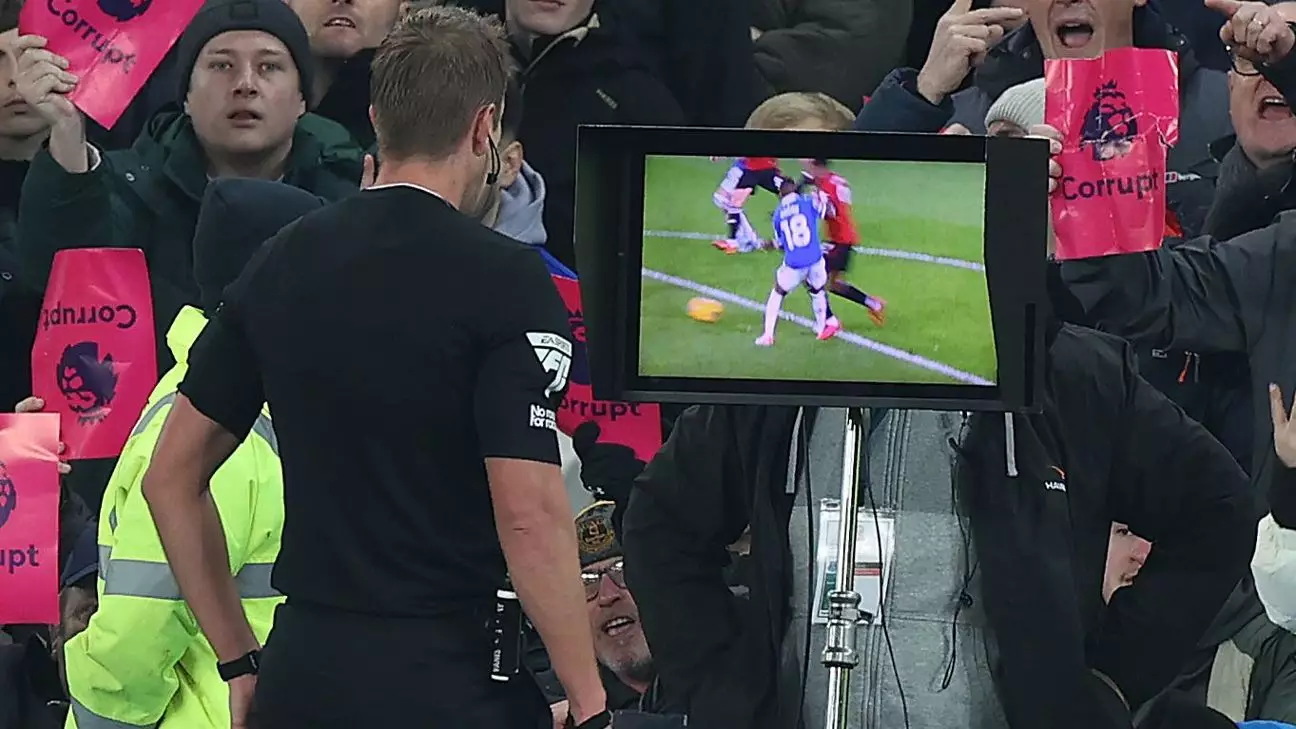The recent vote among Premier League clubs regarding the future of VAR has left Wolverhampton Wanderers disappointed, as their motion to scrap the video assistant technology was defeated by a margin of 19-1. This outcome indicates a general consensus among top-flight clubs to maintain the use of VAR in English football. Wolves argued that the small increase in accuracy provided by VAR comes at the expense of the spirit of the game, leading them to propose its removal starting from the 2024/25 season. However, the lack of widespread support for this motion highlights a divergence in opinions within the league.
While Wolves expressed concerns about the implementation of VAR, many clubs believe that the technology serves as a safety net against poor on-field decisions and as such, improvements should be made to enhance its effectiveness. The discussion at the AGM revolved around six action points for improving VAR, including maintaining a high threshold for intervention, reducing game delays, and enhancing fan experience through better communication and transparency. These efforts are aimed at addressing the issues raised by clubs like Wolves while acknowledging the benefits that VAR can bring to the game.
Following the defeat of their motion, Wolverhampton Wanderers released a statement expressing their disappointment but willingness to work with the Premier League and PGMOL to improve VAR. They emphasized the importance of addressing concerns related to delays, consistency, and fan experience to enhance the overall matchday experience for supporters. While maintaining their belief that Premier League football would be better without VAR, Wolves recognized the need for ongoing evolution and improvement of the technology to serve the interests of football.
Despite efforts to enhance VAR, challenges remain in its implementation. The introduction of semiautomated offside technology (SAOT) aims to expedite offside decisions and reduce human error. However, the delay in implementing SAOT due to the need for further testing indicates the complexities involved in introducing new technologies to the game. While SAOT is expected to improve the speed and accuracy of offside calls, it may also lead to more marginal decisions and potential controversies, highlighting the delicate balance between technological advancements and maintaining the integrity of the game.
The Premier League’s adoption of SAOT and other technological innovations is influenced by regulatory bodies like the International Football Association Board (IFAB), which sets the rules governing the use of technology in matches. Limitations on what can be shared during games, such as the communication between referees and VAR, demonstrate the need to comply with established guidelines while exploring new ways to enhance the officiating process. As the sport evolves and technology continues to advance, the future of VAR in the Premier League will depend on a combination of regulatory compliance, stakeholder collaboration, and ongoing improvements to enhance the overall fan experience.
The recent decision to retain VAR in the Premier League reflects a broader commitment to embracing technology while addressing the challenges and controversies associated with its implementation. By engaging in constructive dialogue, implementing targeted improvements, and navigating regulatory constraints, clubs can work towards a future where VAR enhances rather than detracts from the game. As Wolverhampton Wanderers and other clubs continue to advocate for transparency, consistency, and fan engagement, the evolution of VAR in the Premier League will be shaped by a collective effort to strike a balance between innovation and tradition in the world of football.

